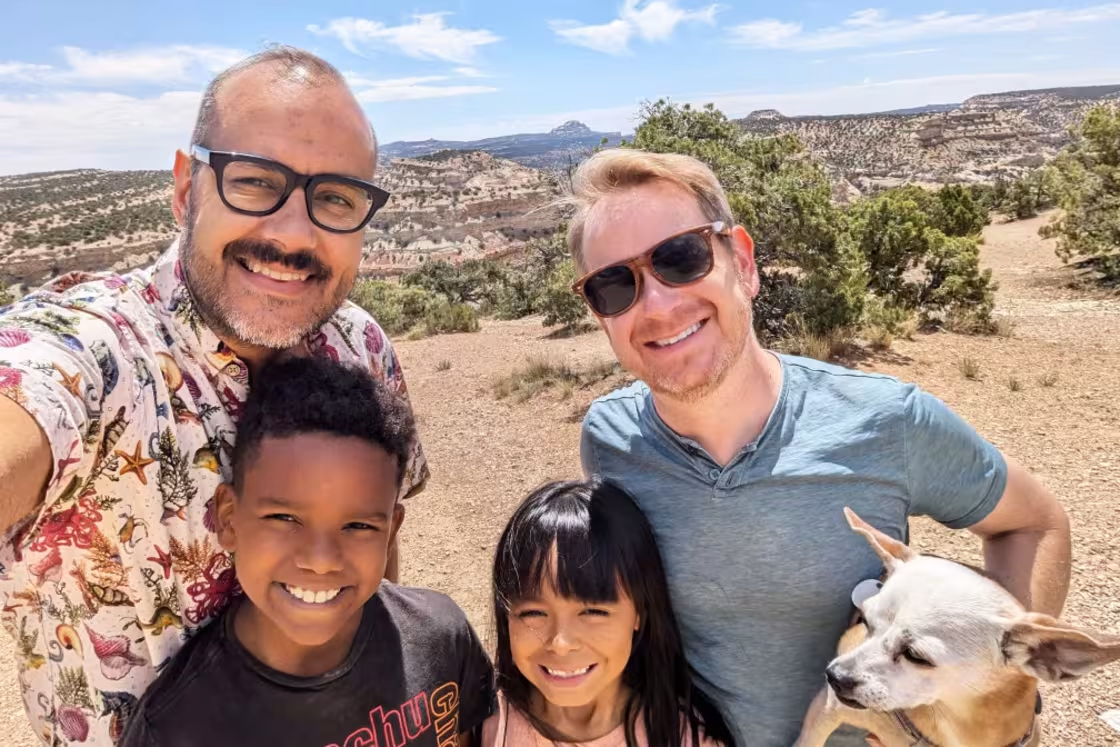
In the beginning, there was “skibidi.”
It appeared abruptly in the lexicons of kids under 14 — the first slang term unique to Generation Alpha. Parents’ ears perked up as they began to hear it around the dinner table. It could mean bad, cool, or nothing at all, their kids explained. Then a dozen more incomprehensible terms followed suit.
Gen Z’s “slay” and “tea” are officially vintage, giving way to “sigma,” “gyatt” and “fanum tax.”
Everyone’s getting whiplash.
Get Tri-state area news delivered to your inbox.> Sign up for NBC New York's News Headlines newsletter.
Children born after 2010, Gen Alpha are the internet’s newest darlings. Though their separation from Gen Z is a matter of being born in 2010 versus 2009, many of their parents feel like there’s a chasm when it comes to understanding the way they speak.
Intergenerational conversations are getting less and less intelligible, some said.
Gen Alpha’s hyper online manner of speaking has been dubbed “brainrot,” mostly by older Gen Zer’s who share spaces like TikTok with them. It’s slang that’s often niche and insular to the internet — sometimes making its way from Roblox to Twitch to TikTok — which is why some older generations find it uniquely difficult to make sense of.
U.S. & World
“Every day there’s just another set of terms,” said Camille Nisich, 53, parent to a 14- and 15- year-old. “They’ll just be talking, and my husband and I are kind of like, ‘We’re not sure what that means.’”
Even younger kids with limited internet access have picked up on them. Michael Petersen, 45, says his 9- and 11-year-old daughters leave him baffled with some of their slang.

“I try to get them to explain what they mean, and I usually end up still totally confused,” he said.
“It’s meant to create this in-group which alienates older people,” said content creator and linguist Adam Aleksic, who makes videos tracing the origin of internet slang terms. “And it can be hard for older people to catch up because you’ve got to be very current with the fads. It evolves so quickly online.”
With the new slang, Gen Alpha itself has gained a reputation. Its random lingo has been described as cringe, the work of “mini millennials” and “iPad kids” — but experts say this generational reaction is not new.
The new slang and how we got here
Many of the Gen Alpha kids who use “skibidi” as part of their daily lingo still don’t really know what it means.
It started with a now-76-part animated YouTube series called “skibidi toilet.” Now it’s used to mean basically anything. But it’s so big now that mainstream Hollywood has taken notice too. Director Michael Bay is set to give “skibidi toilet” the film and TV treatment with a franchise that’s in the works.
“You don’t really use it in sentences, you kind of just say it randomly,” said Petersen’s daughter Beryl, 11. You can describe someone as skibidi, she said, but it’s not a good thing or a bad thing. “It’s just a weird thing.”
But it’s far from the only term making the rounds online. Millennials and Gen Zers with Gen Alpha siblings have made videos on TikTok defining some of the new key terms to know:
“Sigma,” for example, means someone who is cool or a leader, kids said.
“Ohio,” on the other hand, means weird or cringe — based on memes that reference “only in Ohio” type of incidents that happen in the state.
“Negative aura” has replaced Gen Z’s “bad vibes.”
“Fanum tax” means to steal something. Go figure.
Many of the terms originate on video-game-focused live streaming app Twitch and were popularized by viral streamers like Kai Cenat, a gamer with 13 million followers. The term “rizz” (meaning charm or charisma) for example, was used first on his stream, said Aleksic. So was “fanum tax,” named for Cenat’s friend Fanum, who once stole a piece of his food during a livestream.
Marigold translated a portion: “Gyatt is a big butt,” she said.
While family members of kids who speak this way might be left scratching their heads, Aleksic says it’s not so different from the way other slang has developed. The point of any slang is for elders not to know the meaning, he said.
“Thats part of the appeal,” he said. “These memes wouldn’t be funny if your grandma was saying them. That’s how memes start to die.”
If older people became privy, it would kill the vibe, he said. He anticipates that in a few years, these words, like Gen Z’s “yeet” and “bae” will reach their expiration date and be replaced by new words.
Disdain for new slang does, of course, transcend generations
The terms are throwing parents for a loop, and some say even their younger children who have restricted internet access are repeating them.
“There was one — skibidi toilet Ohio rizzler — we just thought it was like nonsense,” said Neal Broverman, 46, whose son Calvin is 8.
They have Google at the ready when their kids say something they don’t understand, but sometimes there are so many layers to knowing the true context. Most of the terms are born on the internet from internet memes or games, and that’s where they spread, evolve and die.
“I will say, ‘What does that mean?’ And then they gotta tell us all the backstory,” Nisich said. “They’ll say, ‘Oh, well, if you were an old-school player of Roblox, you knew about this game. And then this Twitch streamer said this term, and, if you weren’t playing back in the day, you don’t know what that meant.”
The kids know they’re confusing their parents. They mean to.
When older people try to use Gen Alpha slang, “It’s kind of embarrassing,” Beryl said.
They’re also fully aware of the chronically online reputation they have among older generations.
“Gen Alpha is described as obsessed with skin care, makeup, skibidi and rizzler,” Beryl said. “Not a bad reputation, just an edgy or sassy reputation.”

Gen Zers in their 20s are looking on in horror at who is inheriting the internet from them, with many posting videos of their own calling their younger counterparts and their “brainrot” language “scary” and accusing them of not being able to read or write.
“There’s not much inherently different between a Gen Z person and a Gen Alpha person, but each generation feels threatened by the successive generations,” Aleksic said.
The main thing different about Gen Alpha’s slang is the speed at which it’s spreading.
“Nothing is inherently new about how words are evolving,” Aleksic said. “It’s still the same linguistic processes. But we are seeing the internet is causing language change to happen faster. It’s causing it to happen more tied to maybe social media trends than ever before … because social media algorithms are rewarding trending words.”
Slang terms of older generations faced similar vitriolic reactions, he said. Now, some of those, like “cool” and even “photograph,” are a regular and accepted parts of the English language.
“Every single person throughout history has always complained about how the younger generations are ruining language with their made-up slang,” Aleksic said. “That’s why they’re doing it: because they’re building identity. They’re differentiating themselves.”
This article first appeared on NBCNews.com. More from NBC News:



